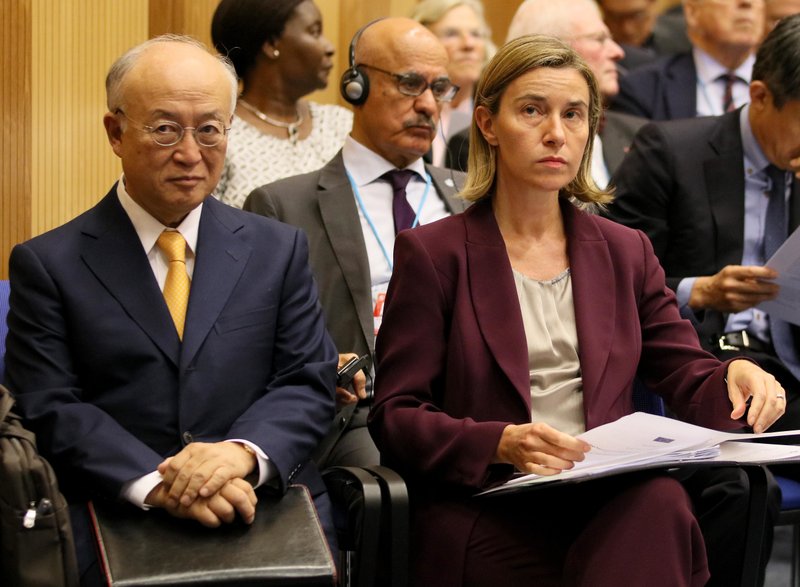VIENNA -- A senior U.S. official on Monday reaffirmed White House support for a treaty banning nuclear testing worldwide and urged other countries to move it toward its long-delayed enactment despite the "domestic political obstacles" keeping her country from ratifying it.
Undersecretary of State Rose Gottemoeller's comments at a meeting marking the 20th anniversary of the Comprehensive Test Ban Treaty underlined some of the obstacles keeping the treaty from being activated.
It will come into force only if the United States and other holdouts among the 44 countries that are designated "nuclear capable" -- China, Egypt, India, Iran, Israel, North Korea and Pakistan -- ratify.
Officials of the Comprehensive Test Ban Treaty Organization, the U.N. body created 20 years ago to monitor the treaty, said that U.S. ratification could serve as an example for at least some of the others to follow suit, and President Barack Obama came into office seven years ago pledging to "aggressively pursue" a global ban on nuclear arms tests. But anti-treaty Republicans stand in the way of the two-thirds majority needed in the Senate for ratification.
Gottemoeller alluded to such opposition and the negative message it sends to other nations despite the Obama administration's "clear support for the [Comprehensive Test Ban Treaty]."
"The United States acknowledges that we have not completed our work on ratification and that our delay gives cover to other ... countries," she said. At the same time, she said her country continues to work internationally and domestically for the treaty "because we know that a global ban on nuclear explosive testing is good for our country."
Advocates say the treaty builds trust at a time of high international tensions, and it is needed to reduce or eliminate radioactive contamination of the atmosphere.
But those opposed claim the treaty does not achieve its aim. U.S. critics say it would allow the country's enemies to cheat while diminishing America's security in an increasingly hostile world.
Comprehensive Test Ban Treaty Organization chief Lassina Zerbo urged Republicans and Democrats to come together in support. The treaty, he said, "serves the national security interests of the United States. "Until we finish what we started ... the world will backslide into nuclear testing," he added.
A Section on 06/14/2016

